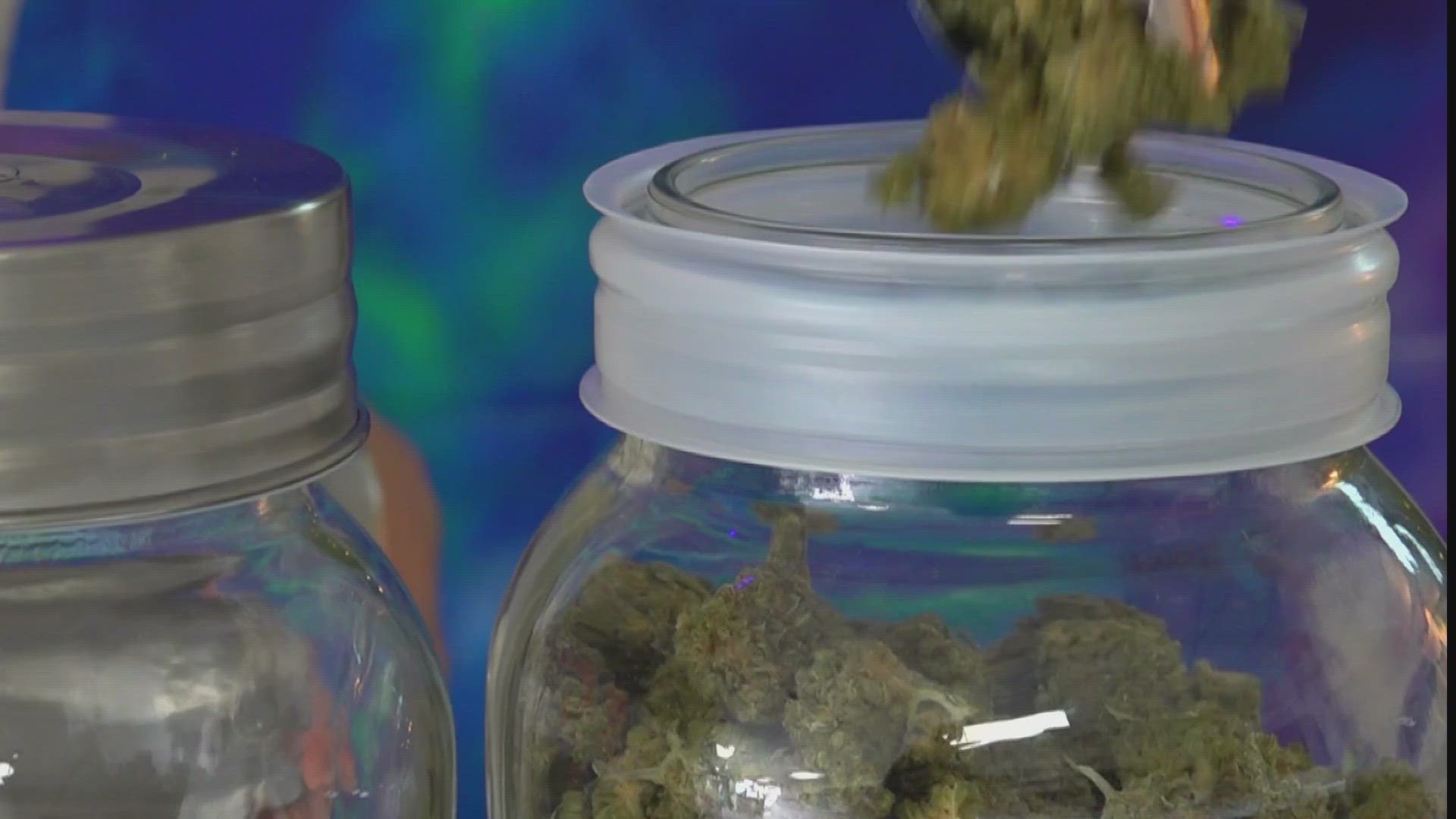KNOXVILLE, Tenn. — State senator Dr. Richard Briggs (R - Knoxville) introduced a bill in January that would add regulations for cannabis products that many people can buy in Tennessee. Those products include Delta-8 THC, Delta-10 THC and THCp.
The final copy of SB 0378 passed both houses of Congress in identical form Monday. The bill does not include CBD products or other products that generally do not have significant amounts of THC.
The bill will make it illegal to sell products containing a "hemp-derived cannabinoid" to people under 21 years old and will also make it explicitly illegal to distribute samples of those products on a public street, sidewalk or in a public park.
"It's frustrating to have the state step in and tell us how we need to be doing it but you know, that's what happens," Hemp House owner Andy Chesney said.
It would also add a 5% sales tax on the listed products. That money would be deposited into a particular account in the state general fund and allocated to the Department of Agriculture to regulate THC products.
"I am a yes man and I think stuff can be done. I feel like stuff is more efficient in the private sector so for the public sector to take on this task, you know, can see that there are going to be some challenges but the Department of Agriculture, so far, has done a great job with the industry and I hope they have leadership in place that's prepared to move forward because the people of Tennessee deserve this," Chesney said.
Retailers will also need to get a license to sell the products. Producers will need to pay $500 for a license, while retailers will need to pay $250 per location. Anyone sentenced for a drug-related felony would also need to wait a decade after finishing their sentence before they could get a license.
"I think this will discourage them and there will also be stings that are done by both the Department of Revenue, Department of Agriculture and the local police," Briggs said.
"In Delta-8, Delta-9, and I think that one, the state has set certain standards for that, and need to be enforced. The other thing is that they definitely need to be kept out of the hands of young people. And they even have vape-type things and gummies and all sorts. They can be very dangerous if a baby gets a hold of it," said Briggs.
The bill requires producers and retailers to contract with an accredited third-party laboratory to test products containing a hemp-derived cannabinoid after being manufactured to determine the presence and amounts of cannabinoids, heavy metals, microbial, mycotoxins, pesticides, and residual solvents. Each batch manufactured must undergo testing and obtain a certificate of analysis.
"It cannot look like candy, it has to be in a childproof package when it's sold, it has to be sold behind the counter and we're hoping that this will make it safe so the people that want to use the Delta-8 can use it with the confidence that it doesn't have contaminants in it that will make them sick and also will keep it out of the hands of children and young adults,"
The bill prohibits retailers and producers from marketing one of these products by using, in the labeling or design of the product or product packaging for the product trade dress, trademarks, branding, or other related imagery or scenery that appeal primarily to persons under 21.
"In nearly half of the calls to the poison control centers and emergency room visits where children got into this, it looked like gummy bears," Briggs said. "The other half were in adults. We don't know why they got sick but it could have been due to contaminants that had not been entirely removed from it."
For manufacturers and owners like Chesney, it's going to require some adjustment.
"Part of business is evolving and rolling with the punches. Our focus is going to remain in compliance and continue to offer great products," Chesney said.
The bill does not exempt a person from prosecution for a criminal offense related to impairment or intoxication resulting from the use of a hemp-derived cannabinoid or relieve a person from any requirement under law to submit to a breath, blood, urine, or other tests to detect the presence of a controlled substance.
The bill also doesn't limit the ability of an employer to establish or enforce a drug-free workplace policy.

